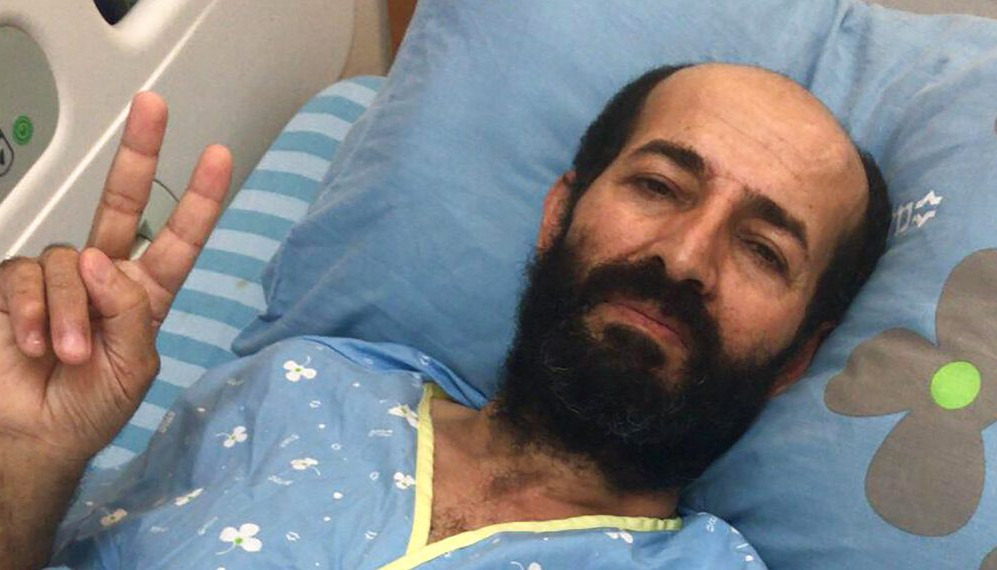
Hunger-striking Palestinian prisoner Maher al-Akhras. (Photo: Press TV)
Ramallah, October 12 (RHC)-- Palestinian prisoner Maher al-Akhras has entered the 77th consecutive day of his open-ended hunger strike against Israel’s so-called policy of administrative detention amid deterioration of his health condition.
Qadri Abu Bakr, head of the Commission of Palestinian Detainees and Ex-Detainees, told the Arabic-language Voice of Palestine radio station on Sunday that Akhras’ health condition has entered the stage of extreme danger.
Abu Bakr further said Akhras has been transferred to another section at Kaplan Hospital after a coronavirus infection was detected in a room next to him. He went on to say that Akhras is suffering from a weak immunity system, adding that his vital organs have begun to lose some functions.
Abu Bakr said the coming days will be decisive for Akhras’s demands as well as for his “dangerous” health condition.
In a statement on Saturday, the leader of the Islamic Jihad movement said Akhras’s health condition indicates that Israelis have decided to kill him. “We have declared a state of full alert, and we will not allow prisoners to be murdered. We also consider murdering any mujahid in this sadistic manner as crossing the red lines, and the prison authorities must be well aware of the consequences of their decision,” the statement said.
Akhras was detained on July 27, and was held under the administrative detention, with no charge. This has led him to start a hunger strike in an attempt to seek justice against the unfair detention.
Last week, the Commission of Palestinian Detainees and Ex-Detainees said Akhras would only end his strike if he was released immediately. Akhras’ wife also announced a hunger strike and sit-in outside the hospital in support of her husband, calling for his immediate release.
Hundreds of Palestinian prisoners are under administrative detention, in which Israel keeps the detainees for up to six months, a period which can be extended an infinite number of times. Women and minors are among these detainees.
Such detentions take place on orders from a military commander and on the basis of what the Israeli regime describes as ‘secret’ evidence. Palestinian detainees have continuously resorted to open-ended hunger strikes in an attempt to express their outrage at the detention.
Palestinians hold Israeli authorities fully responsible for any deterioration of the circumstances in jails.
In May 2019, a study revealed that Israel had arrested some 16,500 Palestinian children since the outbreak of the Second Intifada (uprising) in late-2000.
In recent months and in the wake of the coronavirus pandemic, several Palestinian prisoners have been infected in an Israeli detention center amid mounting concerns about medical negligence by Israeli authorities.

